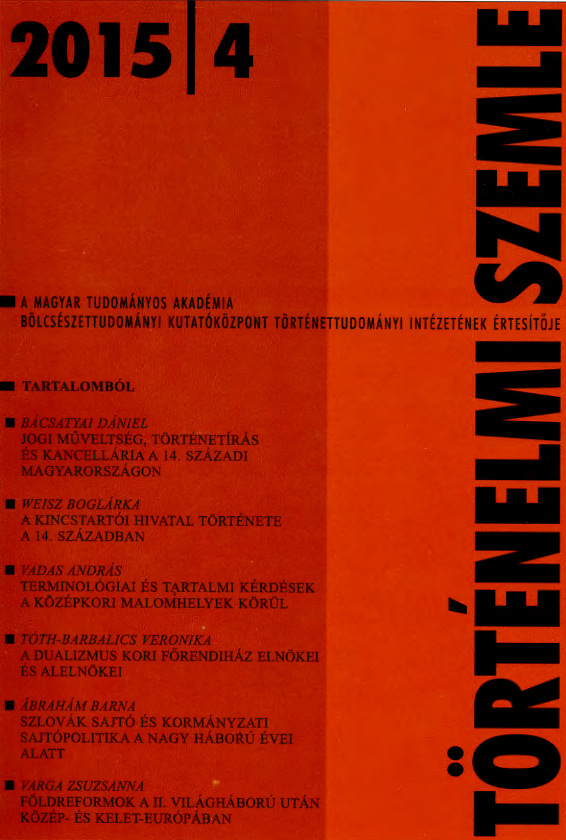Jogi műveltség, történetírás és kancellária a 14. századi Magyarországon
Legal Education, Historiography and Chancellery in 14th-Century Hungary
Author(s): Dániel BácsatyaiSubject(s): Education, Law, Constitution, Jurisprudence, Political history, History of Education, 13th to 14th Centuries
Published by: Magyar Tudományos Akadémia Bölcsészettudományi Kutatóközpont Történettudományi Intézet
Keywords: legal education; historiography; chancellery; 14th century; Hungary;
Summary/Abstract: The lavishly decorated Illuminated Chronicle is a remarkable artifact of 14th century Hungarian historiography. Recapitulating earlier, mostly lost historical works, the text of the chronicle was compiled around 1358 by an anonymous author. While it is beyond doubt that the chronicle’s individual sources show a French intellectual impact, it is still open to discussion whether the compiler was a high-rank secular cleric, often identified with the Székesfehérvár canon Márk Kálti, with lively connections with the Angevin court or, as Elemér Mályusz thought, a member of a monastic order (most probably a Franciscan friar). In this paper I demonstrate that the work’s prologue contains a lengthy quotation from pope Boniface VIII’s decretal collection, the Liber Sextus, which might shed some light upon the author’s learning. Promoting the cult of the apostles, the evangelists and the doctors of the Church, the elevated preamble of the decree was borrowed by the chronicler to laud the virtues of the pious kings of Hungary. My first proposal is the following: the passage was specifically selected by the author to maintain the political ideology of the Angevin dynasty, the cult of the sancti reges Hungariae. Although such awareness of the canon law makes it unlikely that our compiler was a Franciscan friar, his thorough familiarity with the recent Parisian theological literature (Nicolaus de Lyra) suggests that the legal aspect of his studies was less significant. 14th-century Hungarian theologians pursuing their studies in Paris belonged exclusively to the Augustinian Order and maintained intimate relationship with the royal court. Stephanus de Insula, their most significant representative, even held the office of archchancellor (1377–1379), which might indicate his earlier legal education. My second proposal is that the compiler of the Illuminated Chronicle should be searched in this intellectual environment. An abbreviated form of the quotation found its way to the chancellery of king Sigismund too. These charters of donation fit smoothly into the royal policy of Sigismund’s early reign, when the king made immense concessions to the aristocracy of the late Angevin kings. The passage, however, which used to praise the glory of the saints of God, then that of the kings of Hungary, now started to feed the vanity of the barons of Sigismund.
Journal: Történelmi Szemle
- Issue Year: 2015
- Issue No: 04
- Page Range: 607-618
- Page Count: 12
- Language: Hungarian

